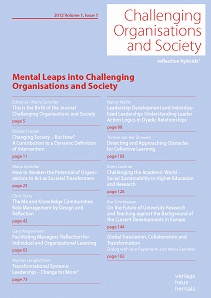Guidelines for selecting intervention methods
My model for organisational development, based on The Logic of Feeling, serves as a guide for determining intervention methods that fit in with the organisation’s phase of development, and with the nature of the issue. I named my model the Logic of Will, Discipline and Communication. The three driving forces of will (internal steering of the Natural System), discipline (external steering of the Social System of rules) and communication (integration by the Communicative self -steering System) can produce six types of obstacles in organisations. Each type of steering can be too weak or too strong. The table below shows how each obstacle can be recognized, the type of approach to deal with the obstacle and some examples of effective intervention methods.
As consultant and researcher I can help to determine what type of approach and interventions fit a specific situation. The outcome of this analysis has consequenses also determines the role of the consultant in the proces for change or development. See also vision on the role as consultant.
| Obstacles | Symptoms | Approach | Methods focusing on: |
| Stagnation due to lack of will |
|
Reinforce internal steering: ensure that people feel at home and get more will |
|
| Agression due to too strong will |
|
Decrease internal steering: improve relations and manage aggression | |
| Chaos due to lack of discipline |
|
Reinforce external steering: professionalize organisations, develop discipline |
|
| Bureaucracy due to too much discipline |
|
Decrease external steering: get more flexible, debureaucratization |
|
| Depression due to lack of communication |
|
Reinforce communicative self-steering: develop capacities for reflection and communication |
|
| Disorientation due to too much communication |
|
Interactive vision development, promote creativity and decision making skills |
|
The Logic of Will, Discipline and Communication
The model with the table results from thorough reflection and extensive practical experience. I have written an article about this model with the title ‘Detecting and approaching obstacles for collective learning’, published in the international scientific journal Challenging Organisations and Society. reflective hybrids®
